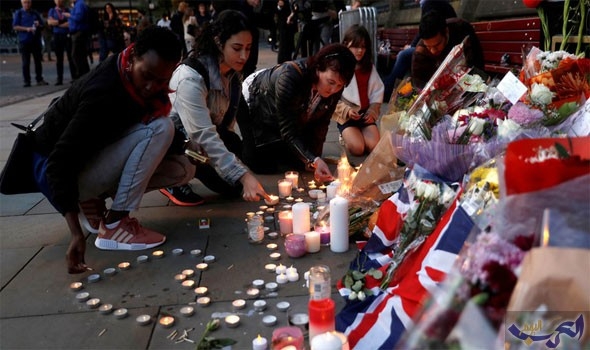Jordanian Columnist, Fahd Al-Khitan: The Manchester Bomber Is A Product Of His Society’s Culture Of Hate; Families Are Responsible For Their Sons’ Actions
MEMRI/June 09/17
Following the May 22, 2017 Manchester bombing, which has been claimed by ISIS, Fahd Al-Khitan, a senior columnist for the Jordanian daily Al-Ghad, wrote an article in which he placed responsibility for the crime on the bomber’s family and on the immigrant society in which he grew up, which adhere to a culture of hate instead of assimilating in British society and adopting its values. Rejecting the claim often heard in the Arab and Muslim world, that the West is to blame for the emergence of ISIS, Al-Khitan stressed that this organization is the product of the culture of rejecting the other that permeates the Arab and Muslim society and which will continue to produce terrorists even when ISIS itself is eliminated.
The following are excerpts from his article.[1]
“It was the natural outcome of the culture of hate. That is the only explanation for the heinous deed committed by the terrorist Salman Al-‘Abedi in the city of Manchester. The terrorist’s family fled the tyranny of [former Libyan ruler Mu’ammar] Al-Qadhafi and sought asylum in Britain, and Al-‘Abedi was born and grew up there, in a civilized and pluralist society that respected his right to live in dignity. But hatred for the other, which he absorbed in his closed-off environment, overcame the humanistic values he learned in British society.
“He [came to] support the most benighted stream in history and quenched his thirst by going back to the roots of his former culture, [the culture] of his country of origin. He left Britain for Libya, but then returned there to commit his heinous crime. He had no particular target; all he wanted to do was kill those who differed from him in their culture and beliefs, otherwise why would he choose [to bomb] a concert attended by teenaged girls and boys? [He chose it] just because it was a possible target for practicing his hobby of murder. Had [this target] been unavailable, he would have run people over in the street or spilled their guts in museums or restaurants.
“Loyalty to ISIS is not enough to explain what happened. [The bomber] had deeper motivations. The culture in which he was raised allowed him to automatically find his place in an organizational framework that has become the authentic tool of expression for a wide stream in our societies, [a stream] that negates the other, defends [the act of] murdering him and is overjoyed whenever there is breaking news about a terror attack.
“The family of the terrorist Al-‘Abedi, and the families of previous terrorists, are not innocent, because they played a central role in what happened to their sons. [The sons] imbibed the culture of hate at home and in the closed-off environment that millions of immigrants in the West inhabit.
[The immigrants] have their own schools, and their communities keep themselves to themselves, [living] in their own world isolated from the wider society. Al-‘Abedi is the authentic expression of the social schizophrenia that many [immigrants] suffer from and of the culture of seclusion that dominates millions of people in our societies.
“We are bound to hear [all kinds of] cheap justifications for his crime, most of them holding the West responsible for the current situation in our countries, and all of them falling into the rubric of treating murder and barbarity as normal…
“Al-‘Abedi’s case is perhaps the most typical example [of what I am saying], because his family members might have died or might have been jailed for life had they stayed in Libya. His father and mother fled [Libya] and sought asylum in Britain to save their lives and find some peace.
Do the British deserve to have a member of this family, which was a victim of the Al-Qadhafi regime, repay it with such a cowardly action [as this bombing]? Al-‘Abedi was born in Britain and was given a chance to build [the kind of] successful life that millions of his peers [in the Arab world] wish for themselves. But he remained loyal to his cultural roots and harbored intense hatred which exploded the minute he had a chance to fulfill his terrorist duty.
‘Abedi’s case [shows] that, in order to be a terrorist, one does not necessarily have to join ISIS physically. It is enough to drink from the well of the benighted ideology, because then ISIS becomes the predictable outcome…
“The ISIS caliphate in Mosul and Al-Raqqa will vanish soon, but Al-‘Abedi and his fellow terrorists will long continue to exist among us. Their cultural enterprise will thrive and grow every day and in every place.”
[1] Al-Ghad (Jordan), May 25, 2017.



















